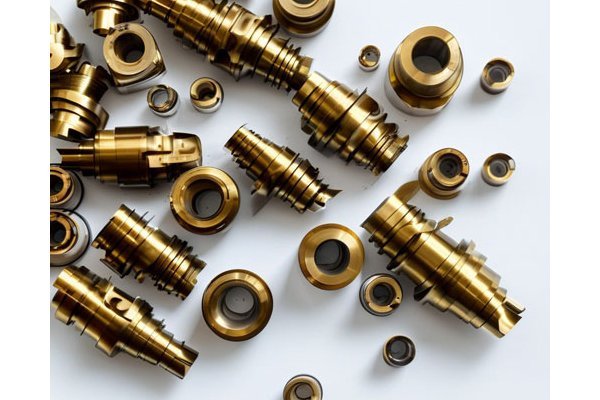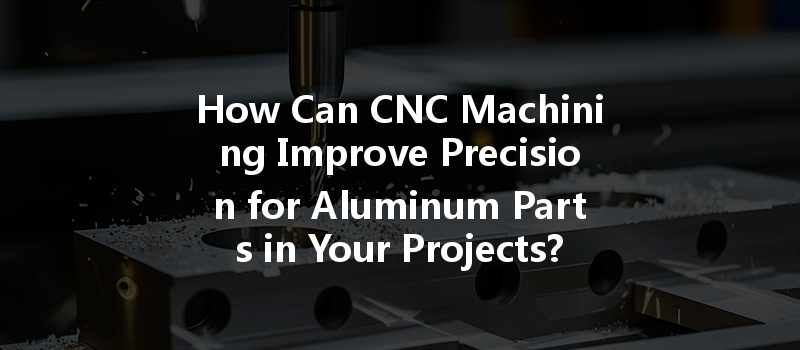Did you know that the global CNC machining market is expected to reach USD 100 billion by 2027, growing at a remarkable rate of 7.5% annually? This surge highlights a growing recognition of CNC (Computer Numerical Control) machining as an indispensable technology in manufacturing, particularly when it comes to producing high-precision aluminum parts. With its ability to deliver exceptional accuracy, repeatability, and flexibility, CNC machining has revolutionized how industries approach component fabrication.
In this extensive blog post, we will delve deep into the intricacies of CNC machining and explore how it can significantly enhance the precision of aluminum parts for various applications. We will provide a detailed examination of techniques, practices, and insights that can lead you to success in your projects, whether you are a seasoned engineer, a small business owner, or a hobbyist.
What is CNC Machining?
CNC machining involves the use of computer-controlled machines to process various materials, including metals, plastics, and composites. The machinery utilized—such as routers, lathes, and mills—operates based on programmed commands rather than manual operation. This automated process ensures that the components produced meet stringent specifications and tolerances, making CNC machining ideal for precision applications.
The Benefits of CNC Machining for Aluminum Parts

Key Factors Influencing Precision in CNC Machining
To effectively improve the precision of aluminum parts through CNC machining, several key factors must be considered:
Understanding Aluminum Alloys
Aluminum is a widely used material due to its favorable properties, including a high strength-to-weight ratio, corrosion resistance, and machinability. However, the choice of aluminum alloy can significantly affect machining precision. Common alloys for CNC machining include:
Understanding the specific properties of each alloy is essential for selecting the right machining strategies for achieving precision.
Techniques to Improve Precision in CNC Machining of Aluminum Parts
Computer-Aided Design (CAD) and Manufacturing (CAM) software have transformed how engineers design and machine parts. By utilizing these tools:
Quality control is vital for ensuring that precision is maintained throughout the machining process. This includes:
Choosing the right cutting tools can make a significant difference in the machining process. Factors to consider include:

Proper machine setup can impact precision significantly. Guidelines include:
Experimenting with different feed rates and spindle speeds can lead to optimal conditions for the specific aluminum alloy being machined. Key considerations include:
Implementing Lean Manufacturing Principles
Implementing lean manufacturing principles can enhance both efficiency and precision in CNC machining operations:
Real-World Applications and Case Studies
Aerospace Industry
The aerospace sector demands extreme precision due to safety concerns and performance requirements. Companies like Boeing and Airbus leverage CNC machining to produce aluminum components with tolerances often tighter than ±0.001 inches. Continuous advancements in CAD/CAM technologies and machining techniques have improved the reliability of aircraft components while reducing lead times.
Automotive Sector
In the automotive industry, precision CNC machining allows for the creation of intricate components such as engine blocks and transmission housings. High-performance vehicles benefit from the lightweight properties of aluminum, making it possible to optimize performance while enhancing fuel efficiency.
Medical Devices
The medical device industry requires strict adherence to precision standards while ensuring the safety and functionality of components like surgical instruments and implants. CNC machining enables manufacturers to consistently produce high-tolerance parts that meet rigorous regulatory requirements.
How to Choose the Right CNC Machining Service Provider
Selecting a suitable CNC machining service provider is crucial for ensuring the precision of your aluminum parts. Here are some criteria to consider:
CNC machining is a powerful asset in achieving high precision for aluminum parts in your projects. By implementing the right practices, from selecting the appropriate tools and materials to embracing technology and quality assurance measures, you can greatly enhance the accuracy and functionality of your components.
With the global CNC machining market expanding, staying informed and adaptive to these advancements is more crucial than ever. As industries continue to seek high-performance and efficient manufacturing solutions, embracing CNC machining will not only streamline your processes but also elevate your project outcomes.
In summary, the steps and strategies outlined in this blog serve as a vital resource for anyone seeking to improve precision through CNC machining. It is an essential area to consider for anyone involved in design and manufacturing, and remaining attuned to these techniques will ensure your success for years to come. We encourage you to delve into CNC machining with a strategic mindset and harness the capabilities it offers, realizing the potential of precision manufacturing in aluminum parts.




